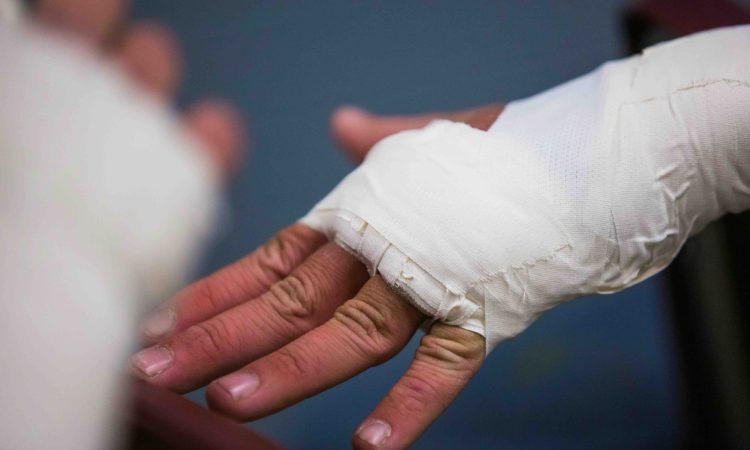
Defending Personal Injury Claims: A Comprehensive Guide
Personal injury claims are often seen from the perspective of claimants seeking compensation, but defending such claims is a complex and equally important area of law. Employers, insurers, and public bodies in the UK can face claims arising from workplace accidents, road traffic incidents, public liability, and product-related injuries.
Defending these claims requires a strategic, informed, and proactive approach. At Hopkins Solicitors, we understand the challenges organisations face when accused of negligence or liability. Our team provides tailored advice and robust representation to protect our clients’ interests, manage costs, and reduce exposure to risk.
This article explores how defendant personal injury cases work in practice, what the work involves, the timescales, cost structures, and why early expert involvement is critical.
Understanding Defendant Personal Injury Law
Defendant personal injury law involves acting on behalf of parties accused of causing harm. Unlike claimant work, which focuses on securing compensation, defendant work is focused on assessing liability, defending claims, mitigating risk, and controlling costs.
Defendant cases can arise in multiple contexts, including:
Workplace Accidents
- Employees may bring claims for injuries sustained during employment, including slips, trips, falls, manual handling injuries, or accidents involving machinery. Employers are responsible for maintaining a safe working environment and demonstrating that they took reasonable precautions to prevent harm. Defending such claims often involves reviewing risk assessments, health and safety procedures, training records, and accident reports.
Public Liability Claims
- Public liability claims arise when an individual is injured on premises accessible to the public. This could include injuries in shops, leisure centres, restaurants, or construction sites. Defences often involve demonstrating that reasonable care was taken to ensure safety or that the injury was caused by the claimant’s own actions.
Road Traffic Accidents
- Employers or organisations may face liability for accidents involving vehicles used for work purposes, such as delivery vans or company cars. Defence strategies may include demonstrating compliance with driver training, vehicle maintenance, and health and safety obligations.
Product Liability Claims
- Manufacturers, distributors, or suppliers may face claims if a product causes injury. Defending such claims involves careful analysis of design, warnings, instructions, testing, and maintenance records. Establishing that the product was safe when supplied or that the claimant misused it is often central to defence.
How Defendant Personal Injury Cases Work
The process of defending a personal injury claim can be broken down into several stages:
1. Initial Instructions and Case Assessment
- Once a client instructs the firm, the first step is a comprehensive case assessment
This involves:
- Reviewing accident reports, witness statements, and photographs.
- Assessing medical records and injury reports.
- Examining policies, procedures, and health and safety documentation.
- Considering the potential defences and risks involved.
- At this stage, our team provides practical advice on the likelihood of success, the potential cost exposure, and strategies to manage the claim efficiently.
2. Pre-Action Correspondence
- Before formal court proceedings, the Pre-Action Protocols for Personal Injury Claims require parties to exchange information. For defendants, this includes:
- Responding to the claimant’s letter of claim.
- Requesting supporting documentation, such as medical evidence or CCTV footage.
- Advising on early settlement opportunities versus proceeding to litigation.
- Timely engagement at this stage can often prevent unnecessary escalation and control costs for the client.
3. Defence Preparation
- If the claim progresses, the next step is to prepare a formal defence. This involves:
- Analysing the evidence to determine liability and any contributory negligence by the claimant.
- Instructing expert witnesses when necessary, for example medical or engineering experts.
- Preparing a structured defence to submit to the court, including supporting documentation.
- The defence may highlight errors in the claimant’s account, demonstrate compliance with statutory duties, or show that reasonable steps were taken to prevent harm.
4. Settlement Negotiations
Many claims are resolved without a full trial. Our team manages negotiations to achieve a cost-effective and fair outcome, which may include:
- Advising on offers from claimants.
- Considering litigation risks and financial exposure.
- Ensuring settlements are clearly documented to prevent future claims.
- Even when a settlement is reached, careful review of documentation, release forms, and terms is essential to fully protect the client.
5. Court Proceedings and Trial Preparation
If a case cannot be settled, it may proceed to trial. This requires:
- Preparing a trial bundle, witness statements, and skeleton arguments.
- Instructing and coordinating expert witnesses.
- Representing the client in court, managing both liability and potential damages.
- Court proceedings are resource-intensive, and efficient preparation is key to reducing delays, costs, and risks.
Timescales in Defendant Personal Injury Cases
Timescales vary depending on case complexity and whether litigation is necessary. Factors influencing timescales include the speed of medical report availability, witness availability, pre-action correspondence, and court scheduling. Early legal intervention helps keep the process on track.
Costs and Hourly Rate Work
At Hopkins Solicitors, we handle defendant personal injury cases on an hourly rate basis, which provides transparency and flexibility.
How Hourly Rate Work Operates
- Initial Estimate: Based on the case complexity, we provide an estimate of likely hours and costs.
- Billing: Clients are invoiced periodically with detailed records of work undertaken.
- Flexibility: Hourly billing accommodates cases that evolve or require additional expert evidence.
Hourly rate billing ensures clients only pay for work completed.
Common Challenges in Defendant Cases
Defending personal injury claims can involve several challenges:
- Evidence Collection– Gathering accurate, complete, and timely evidence is essential. Missing documentation can weaken the defence.
- Medical Expert Coordination– Expert reports are often central to dispute resolution. Selecting the right expert and instructing them promptly is crucial.
- Contributory Negligence– Establishing that the claimant contributed to the accident can reduce liability but requires careful legal and factual analysis.
- Regulatory Compliance– Employers and organisations must demonstrate adherence to statutory duties and best practices. Failure to do so can increase exposure.
Why Early Legal Support Matters
Engaging a specialist in defendant personal injury claims early has multiple benefits:
- Risk Assessment- Understand potential exposure before responding to claims.
- Efficient Case Management- Early organisation of evidence, documentation, and expert reports.
- Cost Control- Timely advice can prevent unnecessary expenditure.
- Strategic Decision-Making- Determine whether settlement or litigation is the most appropriate route.
- At Hopkins Solicitors, we guide clients through these decisions, offering clarity and confidence at each stage.
Current Trends in UK Defendant Personal Injury
Several trends highlight why expert defendant support is essential:
- Heightened Workplace Safety Scrutiny- Employers are increasingly accountable for health and safety compliance, making early investigation critical.
- Medical Evidence Requirements- Courts demand detailed and timely medical evidence, increasing the importance of prompt expert instruction.
- Focus on Cost Management- With rising litigation costs, defendants benefit from firms experienced in efficiently managing cases without compromising outcomes.
Choosing Hopkins Solicitors for Defendant Personal Injury
Our team provides:
- Tailored Advice- Practical guidance specific to each client’s sector and needs.
- Proactive Case Management- Minimising delays and unnecessary costs.
- Transparent Billing- Hourly rate structure with clear updates and detailed invoices.
- Expert Representation- From settlement negotiations to trial advocacy, we handle every stage with care and professionalism.
Even if you are new to defending personal injury claims, our team ensures that you understand each step, the risks involved, and your options, empowering you to make informed decisions.
Defending personal injury claims is a complex area requiring legal expertise, strategic thinking, and proactive management. From workplace accidents to public liability claims, organisations must be prepared to respond effectively to allegations of negligence or liability.
At Hopkins Solicitors, we provide a client-focused, practical approach to defendant personal injury work. With clear hourly rate billing, efficient case management, and expert guidance, we help employers, insurers, and public bodies navigate claims confidently.
If your organisation faces a personal injury claim, contact Hopkins Solicitors today to discuss how our team can support you, protect your interests, and manage your risks.
Request a CallbackRelated Articles
-

The Importance of Financial Remedy Orders in Divorce
Divorce is tough, but what comes after can be even tougher if you don’t protect yourself financially. Many people think…
-

New Year, New Start (Leaving a Domestically Abusive Relationship)
For many, the New Year often signals a new start. Sometimes people decide it is time to leave a relationship…
-

Defendant Personal Injury Claims: A Detailed Guide on the Process, Costs, PAD Applications, and How to Protect Your Business
At Hopkins Solicitors, our Personal Injury team frequently advises businesses, organisations, and individuals who are facing claims made against them….